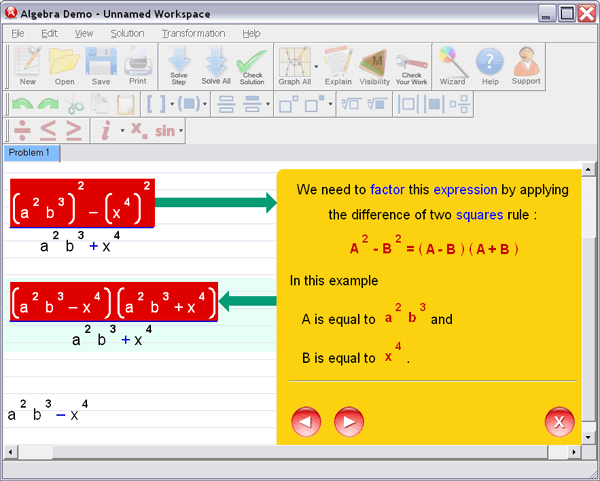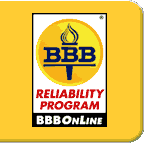PRECALCULUS I
COURSE DESCRIPTION AND PURPOSE: Math 163 provides the theory and applications
necessary
for Math 271 (Applied Calculus for Business) and Math 164 (Precalculus II). This
course focuses largely
on college algebra. We will extensively discuss algebraic functions, as well as
exponential and logarithmic
functions. Also, matrix algebra is useful in solving systems of linear
equations . Hence, if your “calculus
goal” is Math 271, then this is the only precalculus course you will need. If
you plan to take Math 173
(Calculus with Analytic Geometry I), then you will either need to take Math 164
subsequently, or switch
immediately into Math 166 (Precalculus with Trigonometry).
OBJECTIVES: Students successfully completing this course will have proven their
ability to:
(1) Apply appropriate rules for simplifying polynomial , rational, radical,
exponential and logarithmic
expressions.
(2) Solve polynomial, rational, radical, exponential, and logarithmic equations ,
as well as inequalities
in some cases.
(3) Investigate a variety of functions, through their definitions and graphs.
The domain for each of
the functions, in the outline below, is either all real numbers , or the union of
one or more intervals.
Incidentally, other important subsets of the real numbers include the whole
numbers, the integers,
and the rational numbers.
I. Algebraic Functions
A. Polynomials
1. Linear (degree 1)
2. Quadratic (degree 2)
3. Polynomials of degree ≥ 3.
B. Rational functions
C. Other algebraic functions, such as radicals and absolute value .
II. Exponential and Logarithmic Functions
A. Exponential functions, such as base e.
B. Logarithmic functions, such as ln.
(4) Be able to apply the topics in (1)-(3) to problem solving, particularly
business applications
(5) Solve systems of linear equations .
EXAMINATIONS: There will be three (3) examinations, each worth 100 points; and
the final exam will
be worth 150 points. No make-up tests will be given unless arrangements are made
in advance. If you
miss an exam, then the final will be increased by 100 points (in place of the
missed test). No extra credit
will be offered in this course. The tentative exam dates are the Wednesdays of
February 4, March 4, and
April 8. The final exam will be given only on Wednesday, May 6, at 12:00 noon
(note the earlier starting
time).
HOMEWORK: Daily assignments will be made from the text, as an essential element
of mathematical
learning. On 10 of these class meeting throughout the semester, the instructor
will request that the student
hand in that day’s assignment. This will typically occur once a week, during the
weeks a test is not given,
until 10 assignments have been submitted. The score will be 0-5 points depending
on the amount of effort
expended. Therefore, we will have a total of 50 homework points. Late homework
will be subject to a
penalty of points without a valid excuse (leaving early or returning late from
vacations, for instance, is not
legitimate). To simplify submission of homework assignments, please begin the
problem set on a new
sheet of paper.
GRADING POLICY: Based on the last two (2) sections, there is a 500-point total.
Your score will be
converted to a letter grade based on the following scale: 100–90 = A, 89-80 = B,
79-70 = C, 69- 60 = D,
and 59 or below = F.
COURTESY AND SAFETY: Please respect others in this classroom—which means keeping
cellular
phones OFF as much as possible, avoiding any sources of distraction, and staying
for the full class. Any
exceptions to these rules should be cleared with the instructor in advance.
Disruption is not permitted!
NOVA is a place for learning and growing. You should feel safe and comfortable
anywhere on this
campus. In order to meet this objective, you should let your instructor, his
supervisor, the Dean of
Students, or Provost know if any unsafe, unwelcome, or uncomfortable situation
arises that interferes with
the learning process.
FIRE/EMERGENCY EVACUATION PROCEDURE: In case of emergency, please follow the
emergency procedure as posted in the classroom.
ATTENDANCE AND PARTICIPATION: Education is a cooperative endeavor between the
student and
the professor. Successful learning requires good communication between students
and instructors.
Therefore, regular attendance, arrival on time, and active participation are
important and expected. If one
misses the first three (3) weeks of class, the instructor will withdraw the
student administratively from the
course. If you must be absent, it is your responsibility to inform your
instructor beforehand or as soon as
possible.
WITHDRAWAL POLICY: To drop the course, one must officially withdraw. The last
day to withdraw
for adjustments in tuition is January 28; and the final deadline to receive a W
or change to audit is March
27. The award of W after the last day of class requires official documentation,
the Dean’s signature, and
very unusual circumstances.
FURTHER TIPS FOR IMPROVING PERFORMANCE AND REDUCING CONFLICT:
(1) Please devote two (2) hours outside of class for every hour inside class.
(2) For additional help , one should make use of the Tutoring Center (CG 407),
and the Math Lab
(which has software and videos, CG 405). Their services are free.
(3) IF YOU HAVE A DOCUMENTED DISABILITY THAT REQUIRES AN ACCOMODATION,
please contact Campus Disability Services and your instructor within the first
two (2) weeks of
class. The memorandum they provide is confidential.
ACADEMIC DISHONESTY: When college officials award credit, degrees, and
certificates, they must
assume the absolute integrity of the work you have done; therefore, it is
important that you maintain the
highest standard of honor in your scholastic work. The college does not permit
academic dishonesty.
Students who are not honest in their academic work will face disciplinary action
along with an “F” for the
course. Procedures for disciplinary measures and appeals are outlined in the
student handbook. In the mo
extreme cases, academic dishonesty may result in dismissal from the college.
Academic dishonesty, as a
general rule, involves one of the following acts:
(1) Cheating on an examination—including the giving, receiving, or soliciting of
information and the
unauthorized use of notes or other materials.
(2) The use of any material purported to be the unreleased contents of a
forthcoming examination.
(3) Substituting for another person during an examination or allowing another
person to take your
place.
(4) Plagiarism, or taking credit for another person’s work or ideas, without
acknowledging the sourc
(5) Knowingly furnishing false information, or forgery, to the college.
TENTATIVE SCHEDULE (the instructor reserves the right to modify as needed):
Week of
| 1/12-14 |
CHAPTER 1 |
GRAPHS |
| |
1.1 |
Graphing Utilities |
| |
1.2 |
Intercepts ; Symmetry; Graphing Key Equations |
| |
A.6 |
Solving Equations |
| |
1.3 |
Solving Equations Using A Graphing Utlility
|
| |
1.4 |
Lines—determining slopes and linear equations
|
| 1/21 |
CHAPTER 2 |
FUNCTIONS AND THEIR GRAPHS |
| |
A.9 |
Interval Notation; Solving Inequalities
|
| |
2.1 |
Functions: Definition, domain, range, operations
|
| 1/26-28 |
2.2 |
The Graph of a Function |
| |
2.3 |
Properties of Functions |
| |
2.4 |
Library of Functions; Piecewise-defined Functions
|
| |
2.5 |
Graphing Techniques; Transformations |
| 2/2-4 |
Review for Exam 1 |
|
| |
EXAM 1 |
|
| |
CHAPTER 3 |
LINEAR AND QUADRATIC FUNCTIONS |
| |
3.1 |
Linear Functions, their properties, and linear models
|
| 2/9-11 |
3.3 |
Quadratic Functions and Their Properties |
| |
3.5 |
Inequalities Involving Quadratic Functions |
| |
CHAPTER 4 |
POLYNOMIALS AND RATIONAL FUNCTIONS
|
| |
4.1 |
Polynomial Functions and Models |
| 2/16-18 |
4.2 |
Properties of Rational Functions |
| |
4.3 |
The Graph of a Rational Function |
| |
4.4 |
Polynomial and Rational Inequalities |
| 2/23-25 |
4.5 |
Real Zeros of Polynomial Functions |
| |
A.7 |
Complex Numbers |
| |
4.6 |
Complex Zeros; Fundamental Theorem of Algebra
|
| 3/2-4 |
Review for Exam 2 |
|
| |
EXAM 2 |
|
| |
A.10nth Roots; Rational Exponents |
| 3/9-11 |
Spring Break |
|
| 3/16-18 |
CHAPTER 5 |
EXPONENTIAL AND LOGARITHMIC FUNCTIONS
|
| |
5.1 |
Composition of Functions |
| |
5.2 |
One-to-one Functions; Inverse Functions |
| 3/23-25 |
5.3 |
Exponential Functions |
| |
5.4 |
Logarithmic Functions |
| |
5.5 |
Properties of Logarithms |
| 3/30-4/1 |
5.6 |
Logarithmic and Exponential Equations
|
| |
5.7 |
Financial Models |
| |
5.8 |
Exponential Growth and Decay |
| 4/6-4/8 |
Review for Exam 3 |
|
| |
EXAM 3 |
|
| 4/13-15 |
CHAPTER 11 |
SYSTEMS OF EQUATIONS AND INEQUALITIES
|
| |
11.1 |
Solving Systems of Linear Equations: Substitution and Elimination
|
| |
11.2 |
Systems of Linear Equations: Matrices |
| 4/20-22 |
11.4 |
Matrix Algebra |
| 4/27-29 |
11.5 |
Partial Fraction Composition (if time permits)
|
| 5/6 |
FINAL EXAM |
|
Start solving your Algebra Problems
in next 5 minutes!
 |
 |
 |
|
Algebra Helper
Download (and optional CD)
Only $39.99
|
|
Click to Buy Now:
OR
|
|
|
 |
 |
 |
|
2Checkout.com is an authorized reseller
of goods provided by Sofmath
|
|
Attention: We are
currently running a special promotional offer
for Algebra-Answer.com visitors -- if you order
Algebra Helper by midnight of
February 12th
you will pay only $39.99
instead of our regular price of $74.99 -- this is $35 in
savings ! In order to take advantage of this
offer, you need to order by clicking on one of
the buttons on the left, not through our regular
order page.
If you order now you will also receive 30 minute live session from tutor.com for a 1$!
|
You Will Learn Algebra Better - Guaranteed!
Just take a look how incredibly simple Algebra Helper is:
Step 1
: Enter your homework problem in an easy WYSIWYG (What you see is what you get) algebra editor:

Step 2 :
Let Algebra Helper solve it:

Step 3 : Ask for an explanation for the steps you don't understand:

Algebra Helper can solve problems in all the following areas:
- simplification of algebraic expressions (operations
with polynomials (simplifying, degree, synthetic division...), exponential expressions, fractions and roots
(radicals), absolute values)
- factoring and expanding expressions
- finding LCM and GCF
-
(simplifying, rationalizing complex denominators...)
- solving linear, quadratic and many other equations
and inequalities
(including basic logarithmic and exponential equations)
- solving a system of two and three linear equations
(including Cramer's rule)
- graphing curves (lines, parabolas, hyperbolas, circles,
ellipses, equation and inequality solutions)
- graphing general functions
- operations with functions (composition, inverse, range, domain...)
- simplifying logarithms
- basic geometry and trigonometry
(similarity, calculating trig functions, right triangle...)
- arithmetic and other pre-algebra topics
(ratios, proportions, measurements...)
ORDER NOW!
 |
 |
 |
|
Algebra Helper
Download (and optional CD)
Only $39.99
|
|
Click to Buy Now:
OR
|
|
|
 |
 |
 |
|
2Checkout.com is an authorized reseller
of goods provided by Sofmath
|
|
|
 |
| |
| "It
really helped me with my homework. I was
stuck on some problems and your software walked me
step by step through the process..." |
| C. Sievert, KY
| |
| |
 |
| |
Sofmath
19179 Blanco #105-234
San Antonio, TX 78258
|
Phone:
(512) 788-5675
Fax: (512) 519-1805
| | |



